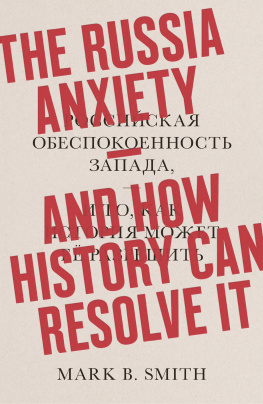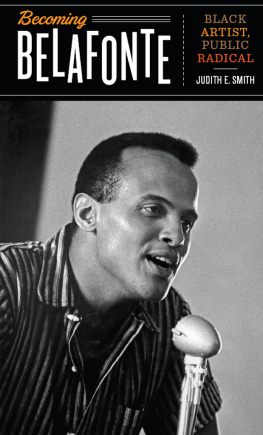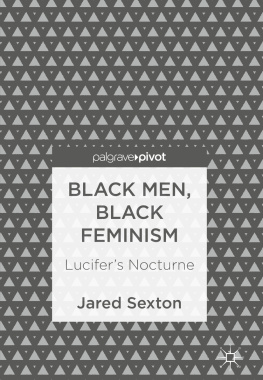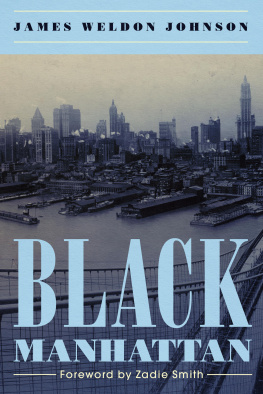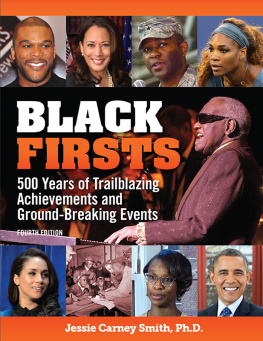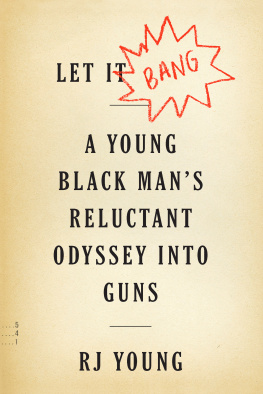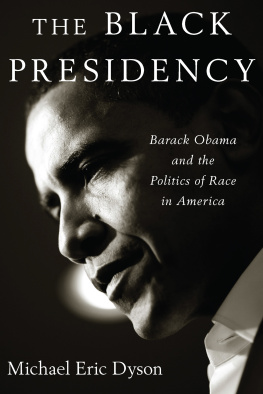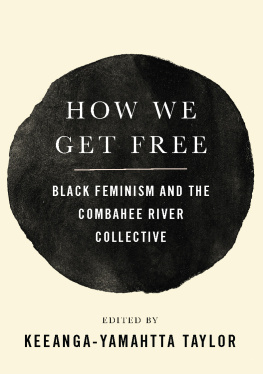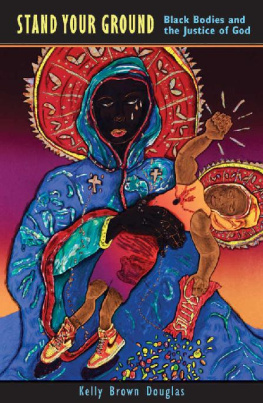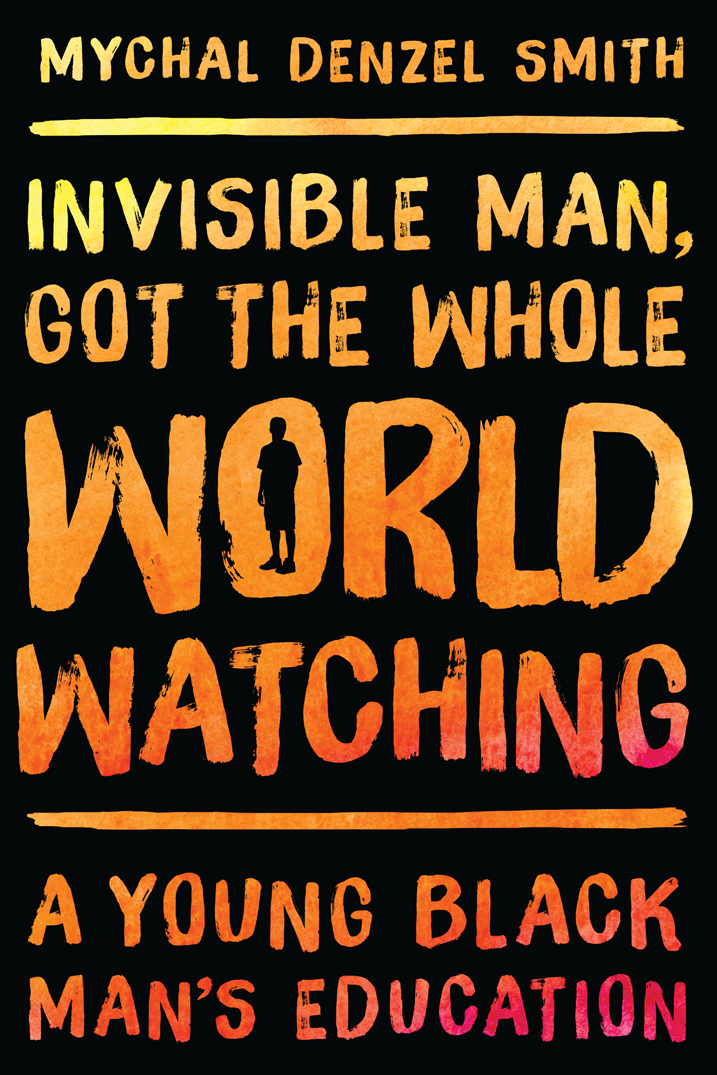Table of Contents
Guide
And this is for...
My family: my Gail, Daddy, Jerel, dear sweet Auntie Gay, Antaeus, Darius, Marcus, Granny, Uncle Al, Jeffrey Severe.
My co-conspirators, without whom this book wouldnt have been written: Katy ODonnell, Jessica Papin, Alessandra Bastagli.
My friends, colleagues, and comrades whose contributions to and support of this project are worth more than their brief acknowledgment here: Bassey Ikpi, Marc Lamont Hill, Kiese Laymon, R. LHeureux Lewis-McCoy, Mark Anthony Neal, Darnell L. Moore, Marlon Peterson, Kai M. Green, Hashim Pipkin, Wade Davis, Nyle Fort, Salamishah Tillet, Tayari Jones, Jessica Valenti, Lori Adelman, Josie Duffy, Joan Morgan, Brittney Cooper, Treva Lindsey, Kimberl Crenshaw, Ava DuVernay, Melissa Harris-Perry, Janet Mock, Charlene Carruthers, Dante Barry, umi selah, Alicia Garza, Tory Russell, Jamilah Lemieux, Alencia Johnson, Jessica Byrd, Jermaine Spradley, Tall Ass Ian Blair,
Kiara Pesante Haughton, Ruby-Beth Buitekant, Tiq Milan, Ryan Devereaux, Abby Ellis, Sarah Leonard, Jesse Myerson, Molly Knefel, John Knefel, Meredith Clark, Gideon Oliver, Natasha Lennard, Lukas Hermsmeier, Josh Begley, Nick Pinto, Kristen Gwynne, Ali Gharib, Alyona Minkovski, Andrea Jones, Melissa Gira Grant, Tommy Moore, Ned Resnikoff, Cora Currier, Rembert Browne, Syreeta McFadden, Alana Massey, Amy Rose Spiegel, Annie Shields, Frank Reynolds, Kate Murphy, Caitlin Graf, Liliana Segura, Maya Dusenbery, Chloe Angyal, Alexandra Brodsky, Vanessa Valenti, Samhita Mukhopadhyay, Taya Kitman, Annelise Whitley, Roz Hunter, Katrina vanden Heuvel, Emily Douglas, Kai Wright, Richard Kim, and everyone Im sure I missed but swear I didnt mean anything by it.
My soundtracks: Black on Both Sides, The Blueprint, Lord Willin, The College Dropout, Thug Motivation 101, good kid, m.A.A.d. city, Run the Jewels 2.
Everyone whose text I never returned, email I neglected, date I cancelled in order to get this done. Hope you understand.
Stacy, Anna, Nora, and everyone else at Caf Ghia.
The Teenage Mutant Ninja Turtles.
Demetri.
You, for buying the book and taking the time to read it. Truly, thanks for BUYING the book and taking the time to READ it.
The martyrs, the tokens, and the movement.

Mychal Denzel Smith is a Knobler Fellow at the Nation Institute and a contributing writer for the Nation magazine. He has also written for the New York Times, Atlantic, Salon, Feministing.com, Guardian, Root, theGrio, ThinkProgress, and Huffington Post, and he has been a featured commentator on NPR, BBC radio, CNN, MSNBC, Al Jazeera America, HuffPost Live, and a number of other radio and television programs. Follow him @mychalsmith. Credit: SYREETA MCFADDEN

Founded in 2000, Nation Books has become a leading voice in American independent publishing. The inspiration for the imprint came from the Nation magazine, the oldest independent and continuously published weekly magazine of politics and culture in the United States.
The imprints mission is to produce authoritative books that break new ground and shed light on current social and political issues. We publish established authors who are leaders in their area of expertise, and endeavor to cultivate a new generation of emerging and talented writers. With each of our books we aim to positively affect cultural and political discourse.
Nation Books is a project of The Nation Institute, a nonprofit media center established to extend the reach of democratic ideals and strengthen the independent press. The Nation Institute is home to a dynamic range of programs: our award-winning Investigative Fund, which supports ground-breaking investigative journalism; the widely read and syndicated website TomDispatch; our internship program in conjunction with the Nation magazine; and Journalism Fellowships that fund up to 20 high-profile reporters every year.
For more information on Nation Books, the Nation magazine, and The Nation Institute, please visit:
www.nationbooks.org
www.nationinstitute.org
www.thenation.com
www.facebook.com/nationbooks.ny
Twitter: @nationbooks
M y parents sent me to college to become a credit to my race. It was never said in those exact words, but the idea was planted early on that my life would be one where I would defy all of the stereotypes associated with being a black man. I wasnt allowed to sag my pants, or say the n-word, or listen to rap music that had explicit lyrics. My mother corrected my English whenever I dropped my gs or started a sentence with me and... I wasnt supposed to ever give anyone the opportunity to think of me as less than. Academic excellence was the biggest part of being twice as good and therefore a college education was non-negotiable. It was the key to the future my father envisioned for me. He wanted me to be an upstanding citizen with unimpeachable credentials who could gain everyones respect so they might see me as more than just another black man and come to see me as a man. My parents wanted me to become Barack Obama.
They never said it in those words either, of course, because they didnt know who Barack Obama was. Hardly anyone did until July 27, 2004. He was an Illinois state senator with no national profile. He wrote a memoir that was released in 1995 that had a modest public reception. He ran for Congress in 2000 and lost. But four years later here he was, a candidate for an open U.S. Senate seat and being tapped to deliver the keynote address at the Democratic National Convention.
I didnt see the speech, because I didnt see any of the convention, because I thought electoral politics was inherently corrupt and useless. The first election I ever paid attention to was determined by hanging chads and the Supreme Court, and ultimately gave us George W. Bush as president. I wasnt about to put any faith in that kind of system.
But I heard plenty about Obamas speech the next day. My father was gushing about it. I had never known him to have any strong political opinions. My parents read the newspaper every morning and watched the news every night, but that was the extent of their political dedication. The most they said about politics to me and my little brother was that voting was important. But now, after hearing Obama speak, suddenly my father was a pundit. He was so impressed, he wished Obama were the one running to defeat Bushs reelection campaign instead of the settled-for John Kerry. Obama was everything Kerry wasnt. Naturally charismatic. A dynamic speaker. Youthful. Relatable. Black.
But the right kind of black. The successful, respectable kind of black. The kind of black that was twice as good, that made itself known and then faded. The kind of black that would allow people to just see a man. The kind of black man my father was raising me to be.
I was curious enough to want to see what had my father, and everyone else, so excited. It wasnt hard to find out, thanks to 24-hour cable news. All I had to do was turn on CNN and witness Obama on a loop, saying, Theres not a black America and white America and Latino America and Asian America; theres the United States of America.
There was more to the speech, but that was the part that got repeated the most, and I wasnt impressed. Obama seemed to be trying to get the country to forget about racism at precisely the same time I was ready to raise the most hell about it. He was emerging as the kind of figure I had been taught to admire, but I did everything to reject the moment I started seeing the world differently.
Next page






